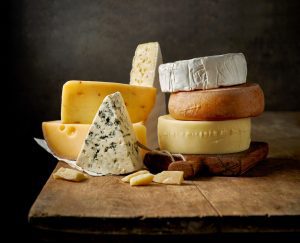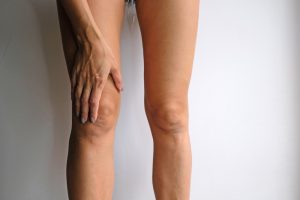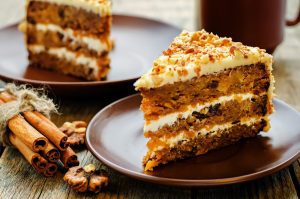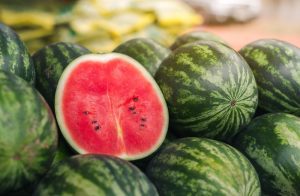 History
History  History
History  Health
Health 10 Everyday Activities That Secretly Alter Consciousness
 History
History Top 10 Historical Disasters Caused by Someone Calling in Sick
 Animals
Animals 10 New Shark Secrets That Recently Dropped
 Movies and TV
Movies and TV 10 Forgotten Realities of Early Live Television Broadcasts
 Technology
Technology 10 Stopgap Technologies That Became Industry Standards
 Weird Stuff
Weird Stuff 10 Wild Facts About Taxidermy That You Probably Didn’t Know
 Travel
Travel 10 Beautiful Travel Destinations (That Will Kill You)
 Miscellaneous
Miscellaneous 10 Modern Marriage Rituals Born from Corporate Branding
 Weird Stuff
Weird Stuff Ten Bizarre Visions of 2026 from Fiction
 History
History 10 “Modern” Problems with Surprising Historical Analogs
 Health
Health 10 Everyday Activities That Secretly Alter Consciousness
 History
History Top 10 Historical Disasters Caused by Someone Calling in Sick
Who's Behind Listverse?

Jamie Frater
Head Editor
Jamie founded Listverse due to an insatiable desire to share fascinating, obscure, and bizarre facts. He has been a guest speaker on numerous national radio and television stations and is a five time published author.
More About Us Animals
Animals 10 New Shark Secrets That Recently Dropped
 Movies and TV
Movies and TV 10 Forgotten Realities of Early Live Television Broadcasts
 Technology
Technology 10 Stopgap Technologies That Became Industry Standards
 Weird Stuff
Weird Stuff 10 Wild Facts About Taxidermy That You Probably Didn’t Know
 Travel
Travel 10 Beautiful Travel Destinations (That Will Kill You)
 Miscellaneous
Miscellaneous 10 Modern Marriage Rituals Born from Corporate Branding
 Weird Stuff
Weird Stuff Ten Bizarre Visions of 2026 from Fiction
10 People Who Suffer From Strange Phobias
The words “fear” and “phobia” are often used interchangeably; however, their meaning is far from the same. Fear is a natural emotion when we are in the presence of danger or harm. On the other hand, a phobia is a persistent, irrational fear that causes the sufferer to be faced with feelings of panic and terror that never seem to go away.
While it’s not uncommon to hear someone say they have a fear of spiders, snakes, or even thunderstorms, the ten people on this list suffer from strange phobias—mostly everyday things—that have had a debilitating effect on their lives.
Related: Top 10 Bizarre Phobias People Suffer From
10 Cafephobia: Fear of Coffee

No matter whether you prefer black coffee, espresso, or a custom-made beverage from your local coffee shop, for most people, our morning doesn’t truly start until after we’ve had our first cup of coffee—or that half-caf caramel macchiato with extra whip. However, for people like Becky Marks, who suffers from cafephobia, the fear of coffee, her life was completely altered by her phobia, and not only during the morning hours.
People who suffer from cafephobia, as well as people who suffer from other food and drink phobias, often simply try to avoid coming in contact with the particular item or putting themselves in a situation that may trigger their phobia. Additionally, they often have feelings of anxiety which lead to panic attacks causing physical symptoms such as sweating, difficulty breathing, nausea, headaches, and dizziness. For Marks, her phobia and its accompanying symptoms became so severe that she was unable to be intimate with her partner, kiss her children, or even swallow her own saliva.
Marks’ phobia started at the age of 16 after losing her premature baby girl. The baby only lived for 10 minutes after birth, and Marks sought counseling to help with the trauma she had experienced. She recalled the doctor telling her that caffeine would make her anxiety worse, yet Marks blamed herself and drinking coffee for losing her baby.
Due to her phobia, she refused to kiss her partner because he was a coffee drinker. Additionally, because he was a coffee drinker and naturally kissed their children, she would not kiss the children due to a fear of cross-contamination. Marks would only use disposable cups, plates, and cutlery and would only eat sealed microwave meals. She would even go so far as to spit out her saliva rather than swallow it. However, through therapy, she was able to overcome her phobia and came to the realization that neither caffeine nor coffee played a role in losing her daughter.[1]
9 Doronophobia: Fear of Opening Gifts

Holidays, birthdays, anniversaries, and celebrations in general often revolve around some form of gift-giving. Gifts are one way to show how much we care for someone, be it a parent, sibling, friend, or partner. The gift giver puts tremendous amounts of thought and care into selecting the perfect gift in anticipation of witnessing the recipient’s reaction. While this tradition of gift-giving has become customary in our day-to-day lives, those who suffer from doronophobia, the fear of opening gifts, never get to experience the joy wrapped inside a perfectly picked present.
Those who suffer from doronophobia often experience severe panic attacks not only from being near gifts or presents but even by simply thinking about being in a situation where they may be expected to open gifts. These panic attacks lead to trembling, hot flashes, chills, and the inability to speak. Doronophobia has had a crippling effect on twenty-six-year-old Sam Das and her family, making it impossible to celebrate Christmas or any other occasion involving gifts.
Das believes her doronophobia began at her 21st birthday party. There were 50 guests in attendance, and when everyone stopped to watch her open gifts, she panicked. While she received wonderful gifts such as perfume and make-up from her friends and family, she couldn’t hide her discomfort. She became hot and sweaty, her heart raced, and she found it difficult to breathe or speak.
From that moment on, Das refuses to open gifts in front of friends, family members, and her husband and will only open gifts in her bedroom when she is completely alone. During holidays or celebratory occasions, she keeps a list with her that is filled with excuses in order to avoid situations that will trigger her phobia. Even though no one will ever see her physically open a gift, Das never forgets to thank her friends and family for anything she receives.[2]
8 Lachanophobia: Fear of Vegetables

While some vegetables such as turnips, beets, and Brussel sprouts may be among some of the least favorite varieties, vegetables are packed full of vitamins, minerals, and fiber. They are an essential part of a healthy diet and may also reduce the risk of heart disease, heart attack, and stroke. However, for those that suffer from lachanophobia, the fear of vegetables, consuming their “five-a-day” is quite literally impossible.
Lachanophobia is the dislike of vegetables that actually turns into a panic attack at the sight or thought of vegetables. People who suffer from this phobia try to avoid touching vegetables and avoid these sections of a grocery store. While it may seem silly that someone could be so afraid of something such as peas or carrots, this phobia may have one of the most negative impacts on one’s health and well-being because their body is deprived of much-needed nutrition.
Twenty-two-year-old Vicki Larrieux suffers from lachanophobia, which brings on panic attacks and sweating at the sight of vegetables. Larrieux recalls “freaking out” if vegetables were on her plate, even as a small child, but it wasn’t until she became an adult that she realized her fear was actually a phobia. Normal trips to the grocery store or out to a restaurant are huge obstacles, but thankfully, Larrieux’s boyfriend understands her phobia and is willing to help in any way he can. While her current diet mainly consists of meat, potatoes, cereal, and some fruit, Larrieux hopes to enjoy a piece of roast with a side of greens one day.[3]
7 Emetophobia: Fear of Vomiting

Vomiting is the natural reaction of our stomach in trying to rid the body of contaminants. It can occur for a wide variety of reasons—early pregnancy, overeating, side effects of medication, or consuming too much alcohol. No matter the reason, vomiting is never a pleasant experience and is understandably something most try to avoid.
Emetophobia is the fear of vomiting. Those suffering from this phobia often avoid specific foods, alcohol, and even social situations where they may be exposed to a virus that could cause vomiting. Like other phobias, emetophobia also brings on panic attacks as well as physical symptoms such as a choking sensation, difficulty breathing, dizziness, sweating, and a rapid heartbeat.
Cheryl Longman began suffering from emetophobia at the age of 12. However, in 2014 after over-indulging in a meal and becoming nauseous, her fear of overeating became even worse. In order to avoid any possibility of becoming sick or overeating, Longman would restrict each meal to only two mouthfuls. Within 15 months, her weight plummeted from 10st 7lbs (147 pounds) to a mere 4st 11 lbs (67 pounds), and she had to be admitted to the hospital and fed through a tube. Naturally, medical professionals, as well as Longman’s friends and family, assumed she was suffering from anorexia.
What they didn’t understand was that she did not have body image issues. Instead, she was trapped in a vicious cycle of being too afraid to eat, which in turn, was causing her stomach to shrink and her body to shut down, no matter how desperately she wanted to put on weight. After a three-week hospital stay and realizing how fortunate she was to recover, Longman has been going to therapy, working on her weight, and spreading awareness of her condition in hopes of helping others.[4]
6 Turophobia: Fear of Cheese

Cheese is an essential ingredient for making entrees such as pizza, tacos, sandwiches, nachos, and many baked pasta or casserole dishes. In fact, there are over 1,800 different varieties of cheese found throughout the world. Unfortunately, people who suffer from turophobia, the fear of cheese, are forced to miss out on so many culinary experiences. But in cases like twenty-two-year-old Melissa North, even walking past cheese in the grocery store leads to clamminess, panic attacks, and tears.
Melissa North’s turophobia started when she was only four years old. She was visiting a friend’s house and was served cheese on toast. Even though the taste was disgusting, North had been taught by her parents to be respectful and always finish what was on her plate. Turophobia is commonly associated with a traumatic memory of the dairy product, so this experience led to a crippling fear of eating, touching, or even seeing cheese. To make matters worse, North experienced cruel jokes and torment throughout her adolescent years regarding her fear of cheese.
At the age of 15, North’s friends threw cream cheese in her face, causing her to fall to the floor and leave the classroom crying. Thankfully, one true friend stepped in to calm her down and clean her face. In another incident, a friend from university decided to smear cheese all over North’s room door and leave a trail of cheese outside, preventing her from going in. Not much has changed as she is still mocked by friends, family, and even her boyfriend about her phobia.[5]
5 Genuphobia: Fear of Knees

Our knees are made of bones, ligaments, tendons, and meniscus and are vital to weight-bearing and movement. Not only is it the largest joint in the human body, but it is also the most stressed. Therefore, it is essential to protect our knees from common injuries such as sprains, tears, and fractures. While everyday functions such as standing, walking, and running would be impossible without our knees, there are some who suffer from genuphobia, the fear of knees, and are completely grossed out by this amazing part of the human body.
Those suffering from genuphobia experience intense emotions and physical symptoms such as shivering, shaking, and panic attacks simply by looking at the knees. Genuphobia can be triggered by a previous knee injury, punishments such as being forced to kneel for long periods, or cultural restrictions, where exposing the knees is frowned upon. Genuphobes typically also try to avoid places such as the beach where others’ knees will be exposed and a church where they may be required to kneel.
Stephanie Cockerill’s genuphobia began when she was lying in bed with her boyfriend and his knees were touching hers. She immediately began feeling sick and having a panic attack. She now avoids all contact with knees, be it hers or others, as she begins to shake and her mind goes blank, making it hard to speak in the situation. Cockerill’s phobia is so intense that she cannot watch movies featuring knees, specifically gangster movies where a kneecap may be broken. She has left her swimming club due to the sight of so many knees, and she refuses to kneel, shave, or even put sunscreen on her legs. Cockerill also claims that if there was a way to remove her knees, she would have such an operation.[6]
4 Pemmaphobia: Fear of Cake

Cakes are a common celebratory dessert for both birthdays and weddings, and the very first wedding cakes were actually a tradition to encourage fertility for the new couple. In Roman times, grain was a symbol of fertility, and it would be thrown at the newlyweds. Then, over time, grain began to be baked into cakes. Wedding cakes often take center stage at the reception, and most couples continue the tradition of preserving the top tier of their cake until their one-year anniversary as a symbol of luck and prosperity. Choosing the perfect cake for your special day may seem daunting, but bride-to-be Rachel Lee has come to dread her wedding day, not only because of a cake choice but because she suffers from pemmaphobia, the fear of cake.
Lee’s phobia started when she was just a small child after eating a piece of sponge cake that made her sick. She begins to cry and shake if someone with cake gets too close to her and the smell of baking cake makes her violently sick. Lee tries to avoid triggers as most phobia sufferers do and has been known to jump over chairs in order to escape the situation. A more intriguing fact is that even though Lee is a black belt in kickboxing, she states she “would rather fight six blokes than eat a piece of cake.”[7]
3 Galaphobia: Fear of Milk

Milk is a great source of protein and calcium. It can be used to make a variety of products such as butter, yogurt, cheese, and ice cream and can also be used as an addition to hot beverages such as hot chocolate and espresso. While it may be hard to imagine that something used to make such delicious products could ever be scary, for someone like Joannah Symes, who suffers from galaphobia, the fear of milk, the white liquid is enough to make her cower in a corner.
Symes has suffered from her phobia for as long as she can remember, although it has gotten much worse as she’s grown older and learned where milk came from. Given her fear, she cannot consume hot beverages that may be flavored with milk, such as tea, coffee, or hot chocolate, and she also avoids cold treats such as milkshakes and ice cream.
It is unbearable for her to watch someone pour milk from a carton or spill any, but since Symes has kept her phobia a secret from most of her friends and family, she has had to learn to manage dealing with these types of difficult situations. Perhaps the worst part for Symes is the fact that her father is a farmer, and he often has to visit milk farms. However, she is very much in control of her emotions and will simply make an excuse to leave or sit inside rather than looking at the cows.[8]
2 Argyrophobia: Fear of Silver Things/Silverware

Formal dinners are well-known for intricate place settings and formal flatware such as cutlery, serving trays, ladles, and bowls. Due to the fact that large dinner parties or multi-course meals are not held as frequently today, many have come to rely on the convenience of disposable utensils in lieu of fancy silverware sets. However, for Zoe Ingleston, who suffers from the fear of metal cutlery, plastic silverware is a necessity at mealtimes.
As with most phobias, it is common for a traumatic experience to bring about feelings of anxiety which then trigger fear that wasn’t previously present. Ingleston’s fear of metal utensils began at the age of 17 when she accidentally hit a new filling in her mouth with a fork. Now, even the sight of metal silverware causes her chest to become tight, and she experiences shortness of breath.
Ingleston has spent the last 20 years dreading mealtimes and only uses plastic cutlery to eat and cook with because the sound of metal scraping triggers cold sweats and panic attacks. Even though she is a mother to four children and engaged to her partner Phil, they are unable to enjoy meals together as a family. Ingleston eats her meals at a separate table and even goes so far as to turn her back to them to avoid seeing any metal utensils. Sadly, the only time they can eat together is on Christmas when her family gives in and agrees to eat with plastic utensils.[9]
1 Cucurbitaceaeophobia: Fear of Watermelon

Watermelon is considered to be a fruit botanically like tomatoes and peppers because of the way it is grown. However, watermelon is also part of the Cucurbitaceae plant family of gourds that includes squash, pumpkins, and cucumbers. Its juicy, red center and refreshing taste have made it a popular addition to summer barbeques, and for a good reason. However, when Xiao Jun, who suffers from cucurbitaceaeophobia, the fear of watermelon, was surprised by his co-workers with watermelon on a hot day, rather than being grateful, he became sick with fear.
Jun had been sick for two months as a child, and in an attempt to get him to take a bitter liquid medicine, his father claimed it was watermelon juice. Jun never forgot this awful experience, and each time he saw a watermelon, he was reminded of the awful medicine and his father’s lies. He was unable to look at a watermelon or be in the presence of one. However, Jun kept his phobia a secret for 30 years. That is, until the day his co-worker presented him with watermelon.[10]








